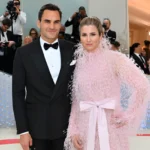

The Double Edged Sword of Rihanna’s Sexuality
Rihanna, the global superstar, is as much celebrated for her music and business ventures as she is for her bold and unapologetic expression of sexuality. Through her music, fashion, and branding, Rihanna has often championed themes of liberation and confidence. However, this unapologetic embrace of sexual empowerment has sparked debates: is she truly breaking barriers, or does her imagery subtly perpetuate the very stereotypes she claims to dismantle?
The Case for Empowerment
Rihanna’s Impact on Body Positivity
Rihanna has long been hailed as a trailblazer in promoting body positivity. Her Savage X Fenty lingerie brand revolutionized the industry by featuring models of all shapes, sizes, and ethnicities, sending a clear message: every body is beautiful. Unlike traditional brands that often catered to narrow beauty standards, Rihanna’s inclusive vision celebrated diversity and individuality.

Reclaiming Sexuality
Rihanna’s music and public persona exude confidence and self-assurance. Tracks like “S&M” and “Needed Me” highlight her ability to take control of her narrative, challenging the notion that women’s sexuality exists solely for male consumption. By openly embracing her desires and presenting them on her terms, Rihanna has inspired countless women to feel empowered in their skin.
Empowering Through Authenticity
Unlike many celebrities, Rihanna’s sexual expression feels authentic rather than performative. Her natural confidence resonates with fans, many of whom view her as a role model for unapologetically embracing one’s true self. Rihanna doesn’t shy away from societal taboos, instead reframing them as sources of power.
The Critic’s Perspective
Reinforcing the Male Gaze
Critics argue that Rihanna’s hypersexualized imagery, while framed as empowerment, often aligns with traditional notions of female objectification. The male gaze—a term describing how women are depicted in ways that cater to male desires—remains prevalent in much of Rihanna’s work. Skeptics question whether her brand of empowerment inadvertently reinforces societal expectations about women’s appearances.
The Line Between Empowerment and Exploitation
While Rihanna celebrates female autonomy, some believe her bold aesthetic and provocative visuals blur the line between empowerment and exploitation. For example, advertisements for Savage X Fenty frequently feature Rihanna in lingerie, with poses and settings that critics say are indistinguishable from traditional objectification.
Feminism or Marketing Strategy?
Others argue that Rihanna’s embrace of sexual liberation might be more about brand building than feminism. As a savvy businesswoman, Rihanna has expertly capitalized on her image to create a multi-billion-dollar empire. Critics question whether her empowerment messaging is sincere or a strategic ploy to generate profit.

The Broader Debate
Sexual Liberation in Pop Culture
Rihanna is not alone in using sexual empowerment as a central theme. Many pop stars, from Beyoncé to Miley Cyrus, have explored similar territory. The recurring debate is whether these portrayals advance feminist ideals or perpetuate age-old stereotypes in new packaging.
Cultural Context Matters
Rihanna’s unapologetic sexuality carries different weights depending on cultural context. For some, her approach challenges conservative norms, providing a voice to women who feel stifled by traditional expectations. For others, it perpetuates the hypersexualization of Black women, a stereotype with deep historical roots.
Fan Reactions
Rihanna’s boldness has sparked divided opinions:
- “She’s redefining what it means to own your body,” says one fan.
- “Her message is powerful, but sometimes it feels too commercialized,” comments another.
- “Rihanna is a feminist icon, but she’s also navigating a tricky line,” adds a cultural critic.
The Complexity of Rihanna’s Legacy
Rihanna’s impact on society is undeniably multifaceted. On one hand, her confidence and inclusivity empower women around the globe to embrace their individuality. On the other hand, her critics raise valid questions about the potential for her work to perpetuate societal pressures.
What sets Rihanna apart is her ability to spark conversations about these issues. Whether fans agree or disagree with her methods, her influence cannot be ignored.
Is Rihanna’s sexual empowerment a beacon of progress or a cleverly disguised extension of objectification? The answer may lie somewhere in between. Rihanna’s celebration of sexuality undeniably challenges outdated norms, but it also raises questions about how empowerment is defined and perceived.
As society continues to grapple with these complexities, one thing remains clear: Rihanna is a cultural icon unafraid to challenge boundaries and spark meaningful discussions. Whether seen as a trailblazer or a polarizing figure, her legacy will continue to shape conversations about feminism, empowerment, and individuality for years to come.


















